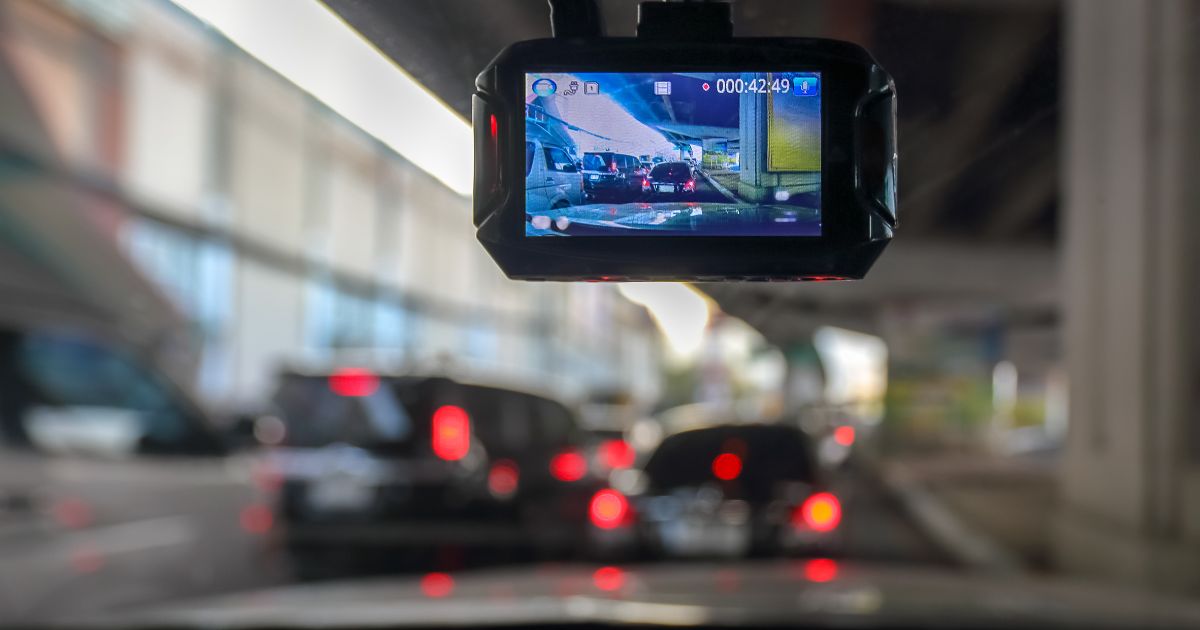Dashcams, or dashboard cameras, have become a popular piece of technology for drivers seeking to document their journeys and protect themselves in the event of a crash. Dashcam footage offers a potentially unbiased record of a collision, capturing the moments leading up to, during, and after an accident. This footage can be a powerful tool for establishing fault, but it can also present risks. A dashcam recording might reveal details that could negatively impact your personal injury claim.
Can Dashcam Footage Ever Work Against You?
Yes, dashcam footage can be used against you. Under Virginia law, if you are found to be at fault for any portion of an accident, you may be barred from recovering any compensation. This is due to Virginia’s strict rule of contributory negligence. If your video shows you engaging in negligent behavior—such as speeding, following too closely, failing to signal a turn, or even glancing at your phone while driving—the opposing side can use this evidence to argue that your negligence contributed to the crash, potentially leading to the dismissal of your claim.
What Are the Potential Limitations of Dashcam Recordings?
Dashcam footage is not always a perfect record of an event. Common issues with dashcam recordings include:
- Limited Field of View: Most dashcams record only what is directly in front of or behind the vehicle. This limited perspective may fail to capture crucial details of a T-bone crash, a sideswipe, or an accident involving multiple vehicles.
- Visual Obstructions: Poor lighting, shadows, glare, or technical glitches can obscure important details, making it difficult to clearly identify vehicles, license plates, or traffic signals.
- Privacy Concerns: Recordings can capture conversations and actions within your vehicle, which may not be directly relevant to the crash but could be used by the opposing party to undermine your credibility.
Is Dashcam Footage More Helpful Than Harmful?
In most cases, a clear, unedited dashcam video is more helpful than harmful. It can provide undeniable proof of another driver’s negligence, such as running a red light, making an illegal turn, or swerving into your lane. Unbiased video evidence can often expedite an insurance settlement by providing a definitive account of the accident, which helps your attorney build a strong, factual case.
When Should You Be Cautious About Sharing Your Footage?
If you believe your dashcam recording might contain any evidence of your own negligence, such as speeding or distracted driving, it is crucial to consult with an attorney before sharing it with an insurance company or the opposing party. While the footage may become discoverable during the litigation process, an early review by a qualified lawyer can help you understand the strengths and weaknesses of your case and advise you on the best course of action.
How Do Virginia Courts Treat Dashcam Evidence?
Virginia courts generally accept relevant, authentic, and unedited dashcam videos as evidence. To be admissible, the footage must be properly authenticated, meaning you must be able to demonstrate that the camera was working correctly and that the video has not been altered. Once admitted, this type of visual evidence can carry significant weight with a jury or judge.
What Is the Proper Way to Handle Dashcam Footage After a Crash?
- Preserve the Original File: Do not edit, crop, or alter the video in any way. Tampering with the footage can severely damage your credibility and lead to its exclusion from evidence.
- Back It Up: Many dashcams automatically overwrite old files. Immediately save the relevant footage to a secure device, such as a computer or external hard drive, to prevent it from being lost.
- Consult a Lawyer: Before sharing the footage with anyone, have an experienced attorney review it. They can assess the video’s potential impact on your case and guide you through the legal process.
Frequently Asked Questions
Will insurance adjusters always ask for my dashcam footage? If an insurance adjuster knows that dashcam footage exists, they will almost certainly request it. During a lawsuit, you are legally obligated to produce the footage if it is requested through the discovery process.
Is it better not to have a dashcam at all? While a dashcam can sometimes reveal mistakes on your part, the risk is often outweighed by the benefit. Dashcams provide powerful, objective evidence that can prove another driver’s fault and protect you from false accusations.
What if my camera stopped working at the accident? The absence of dashcam footage does not prevent you from pursuing a claim. Your case can still be built on other forms of evidence, such as police reports, eyewitness statements, photographic evidence, and medical records.
Could another driver’s dashcam help my case? Yes, video footage from any vehicle at the scene of the accident can be valuable evidence. Your attorney can seek to obtain this footage through the discovery process during a lawsuit.
How long should I keep accident footage? You should preserve the footage until your case is fully resolved. Given that many cameras automatically overwrite old files, it is critical to back up any relevant clips as soon as possible.
Get Help From a Chesapeake Car Accident Lawyer at Anchor Legal®
If you are unsure whether dashcam footage from your crash will help or harm your case, contact a Chesapeake car accident lawyer at Anchor Legal® for guidance. For a free consultation, call us at 757-LAW-0000 or fill out our online form to get in touch. Located in Virginia Beach, we serve clients in Chesapeake, Norfolk, Suffolk, Portsmouth, Newport News, Hampton, Williamsburg, and Eastern Shore, Virginia.


